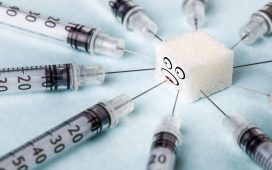Company’s decision means there is one less option in a limited number of approved chemotherapies
FRIDAY, June 18, 2021 (HealthDay News) — The maker of the expensive brain cancer drug Gleostine has removed it from the Medicare drug rebate program, a move that could have dire consequences for some patients.
The drug from NextSource Biotechnology is used to treat glioblastoma and other brain cancers and can cost as much as $1,000 a capsule. The Gleostine patent has expired, but there is no generic version, CBS News reported. The company’s decision — which means there is one less option in a limited number of approved chemotherapies — was criticized by brain tumor experts and patient advocates.
“The decision by the company to withdraw from public health insurance programs weakens the safety net for vulnerable brain cancer patients who already have few treatment options,” David Arons, CEO of the National Brain Tumor Society, told CBS Moneywatch. “We urge NextSource to rejoin these programs and help reduce barriers for patients who require access to this therapy as well as for researchers and clinical trial participants participating in critical, ongoing brain cancer studies.”
“Lomustine [Gleostine] is one of only three FDA-approved chemotherapies for patients with glioblastoma and the one that most patients receive when their tumor progresses on first-line temozolomide chemotherapy. The median age for patients with glioblastoma is 65, meaning the decision to no longer participate in the Medicare program affects half of the glioblastoma population,” Patrick Wen, M.D., director of the Center for Neuro-Oncology at the Dana-Farber Cancer Institute in Boston, told CBS Moneywatch. “The only other treatment is avastin. Lomustine is also the standard-of-care treatment used in the control arm of most recurrent glioblastoma clinical trials, and not having easy access to this drug has an important impact on research to find better treatments for this devastating cancer.”
CBS News Article
Copyright © 2021 HealthDay. All rights reserved.








